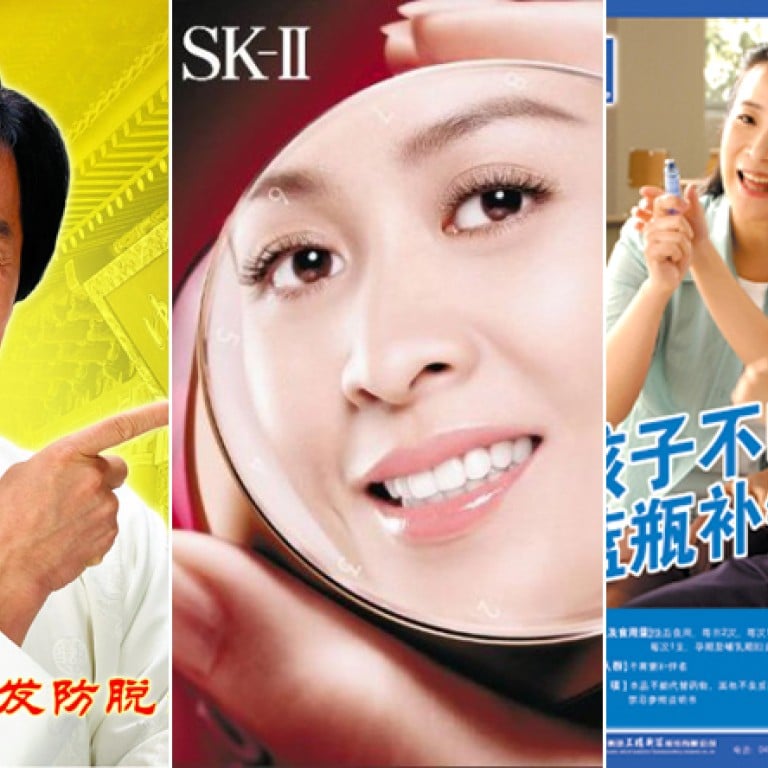
Celebrity endorsements under scrutiny as China steps up consumer protection
When Hong Kong actress Carina Lau Kar-ling endorsed the luxury Japanese skincare brand SK-II in 2006, she said in the commercial that after using the product for 28 days, lines and wrinkles would be reduced by 47 per cent. That magical skincare product was later found to contain chromium, neodymium and other harmful chemical substances. But rather than apologise for the endorsement, Lau simply walked away.
Like Lau, many celebrities have promoted products in China they have never tried or cannot vouch for. When scandal ensues, they don’t have to take any responsibility for their role in promoting the product, despite pocketing enviable sums.
Video: Celebrities in misleading commercials
This is set to end after China passed a new revision of the Law on Protection of the Rights and Interests of Consumers on Thursday, which states that legal liability will extend to celebrities appearing in misleading commercials as well as media that broadcast them.
This is the first major revision to the 20-year-old law. Among all the amendments, the joint liability on misleading commercials has attracted the most attention.
“The owners of the products or service providers, advertising agencies, designers, production teams, factories, sales companies and various media that host the misleading ads will all share responsibility,” Huang Jianhua, an official at the State Administration of Industry and Commerce, said in an evening news programme on China National Radio.
The revised law doesn’t make a distinction between major and minor liability. Celebrities are as responsible as owners, manufacturers and service providers.
Shi Hong, a lawmaker at the National People’s Congress, told Beijing Youth Daily that “customers could demand indemnity from the product provider or the celebrity who endorses the product or service. It depends on the customers themselves. They can also sue both parties.”
In recent years, Jackie Chan dropped his endorsement of a chemical-free shampoo that turned out to contain potentially cancer-causing ingredients, mainland comedian Guo Degang unwittingly endorsed illegally produced slimming tea and mainland actor Tang Guoqiang promoted a hospital on 20 Chinese TV stations that falsely claimed it could cure infertility.
While many lawyers think the revised law will help increase customer protection and encourage celebrities to think carefully about the products they endorse, they argue that some aspects still need more clarification.
“As public figures, celebrities should act responsibly, no doubt on this,” said Shi Lanxuan, a lawyer from Hunan. “But I think the law needs to clarify under what circumstances a celebrity should take responsibility; for example, what if he or she was tricked by the manufacture?”
Meanwhile, the revised law also allows consumers to claim greater compensation. Starting in March this year, they can claim up to three times the original product price in damages. Currently the limit is twice the original price. Judge Zhang Jin of the Supreme People’s Court added that if the defendant can’t afford to pay damages, the plaintiff can add another defendant, including the celebrity promoting the product.
“Compared to other countries, I think this is still not enough. But we have to take into consideration that it’s a good way to protect companies [from bankruptcy],” said Li Jiandong, a lawyer at Yingke Law Firm in Shenzhen.
